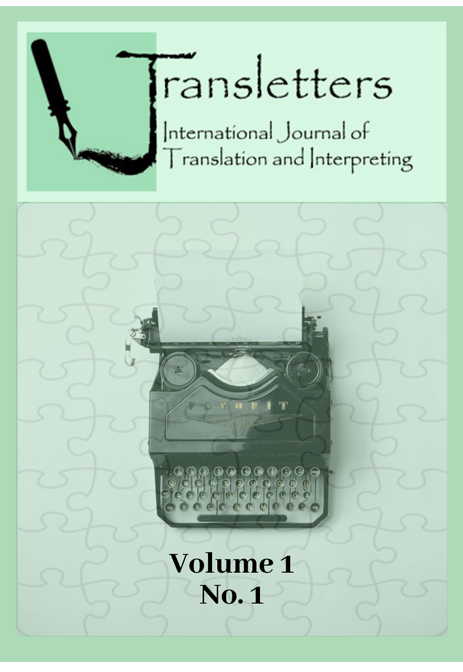ON LACUNARITY IN TRANSLATION OF CULTURE SPECIFIC CONCEPTS
Main Article Content
Abstract
A socio-cultural stereotype is a specific culture concept, distributed by a language community in form of implications completely or partially unintelligible for representatives of other cultures. This specific fragment of a national “world picture”, called lacuna, presents much difficulty in translation. Lacunarity of a sociocultural stereotype in interlingual translation is determined by lexical, cultural, historical, and social factors. Decomposition of a stereotype pragmatic information into components enables to emphasize relevant for a particular context feature, which is possible to render by means of translation language. Reproducing noticeable implications is of special importance for reproduction of a pragmatic meaning of sociocultural stereotypes.
Downloads
Article Details
Proposed Policy for Journals That Offer Open Access
Authors who publish with this journal agree to the following terms:
- Authors retain copyright and grant the journal right of first publication with the work simultaneously licensed under a Creative Commons Attribution License that allows others to share the work with an acknowledgement of the work's authorship and initial publication in this journal.
- Authors are able to enter into separate, additional contractual arrangements for the non-exclusive distribution of the journal's published version of the work (e.g., post it to an institutional repository or publish it in a book), with an acknowledgement of its initial publication in this journal.
- Authors are permitted and encouraged to post their work online (e.g., in institutional repositories or on their website) prior to and during the submission process, as it can lead to productive exchanges, as well as earlier and greater citation of published work (See The Effect of Open Access).

